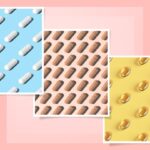How Does Prostate Cancer Become Resistant to Treatment?
Prostate cancer relies on male hormones called androgens, such as testosterone. These hormones are the cancer’s growth fuel. Hormone therapy either blocks or reduces the body’s production of androgens. “If we cut off that supply, we can essentially starve the prostate cancer cells,” says Monica Chatwal, MD, the medical director of prostate cancer clinical drug development at Johnson and Johnson in Tampa, Florida.
The trouble is that prostate cancer cells are “smart,” she adds. Eventually, they develop workarounds that allow them to keep growing.
For example, androgens attach to special receptors on the surface of prostate cancer cells, which enables the cells to send the signals they need to grow. Drugs called androgen receptor blockers stop this process by clogging up the receptors so that androgens can’t attach to them.
Eventually, though, the prostate cancer cells get wise. They sabotage their own receptor to prevent the drug from attaching to it and doing its job. “The cancer cell cuts off the binding site so the drug can’t inhibit its growth,” says Channing Paller, MD, an associate professor of oncology at Johns Hopkins Medicine in Baltimore. “And so, the cells are able to keep dividing and making more prostate cancer cells.”
How long does it take for the cancer to outwit hormone therapy? The average timeline is two to three years. But the length of time differs for each person, says Dr. Paller. “When you look at trials, they’re just averages or medians of how long it takes for patients to become resistant,” she says. “It’s really a wide range.”
Read the full article here




